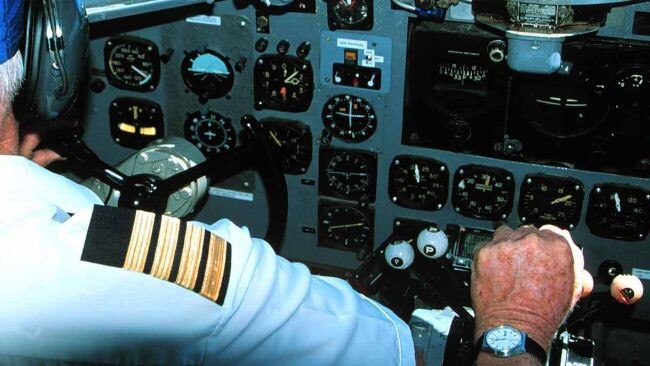Airline staff turning up for work affected by drugs and alcohol
MORE pilots, cabin crew and ground staff, including refuellers, are turning up for work affected by alcohol or drugs including cocaine and cannabis.

NSW
Don't miss out on the headlines from NSW. Followed categories will be added to My News.
CRUCIAL airline staff are testing positive for drugs and alcohol at work, potentially putting lives at risk.
More pilots, engineers, cabin crew and ground staff, including refuellers, are turning up for work affected by alcohol or drugs including cocaine, methamphetamines and cannabis.
Fourteen airline and airport employees working in “safety sensitive” roles across the nation failed drug and drink tests administered last year — up from 11 in 2014.
While that represents just a small percentage of total staff, industry insiders said even one affected person raised safety alarms, given their critical roles in the safety of passengers and other people, and the rising number of positive tests was an even greater concern.
An industry insider also raised concerns that others were going undetected.
It comes after it was revealed last week that Qantas sacked a pilot after he groped a female co-worker while drunk and stoned on a stopover.
“It is disappointing a few people are being detected carrying out aviation duties while affected by alcohol or drugs, and the testing program aims to identify these people,” a Civil Aviation Safety Authority (CASA) spokesman said. “Everyone in aviation must understand they cannot perform aviation safety sensitive duties while affected by alcohol or drugs.”
Nine employees failed alcohol tests in 2015 — including an aircraft engineer, three airport ground staff, four cabin crew and a sport aviation flyer. The legal limit for alcohol is slightly lower than the standard drink-drive limit.
And five people tested positive for drugs including three airport ground staff who tested positive for cannabis and methamphetamine. One student pilot tested positive for cannabis and an engineer tested positive for cocaine.
Federal Transport Minister Darren Chester said the number of failed tests demonstrated there were not “systemic problems with compliance”.
Australian Licensed Aircraft Engineers Association secretary Steve Purvinas said long hours pose a greater threat to safety than booze or drugs.
“This is a legitimate and frequent safety matter that deserves far more attention than trace alcohol limits,” he said.
Transport Workers Union boss Tony Sheldon said: “It’s important that the industry continues its vigilance to eradicate drugs, alcohol and unsafe practices from all workplaces




